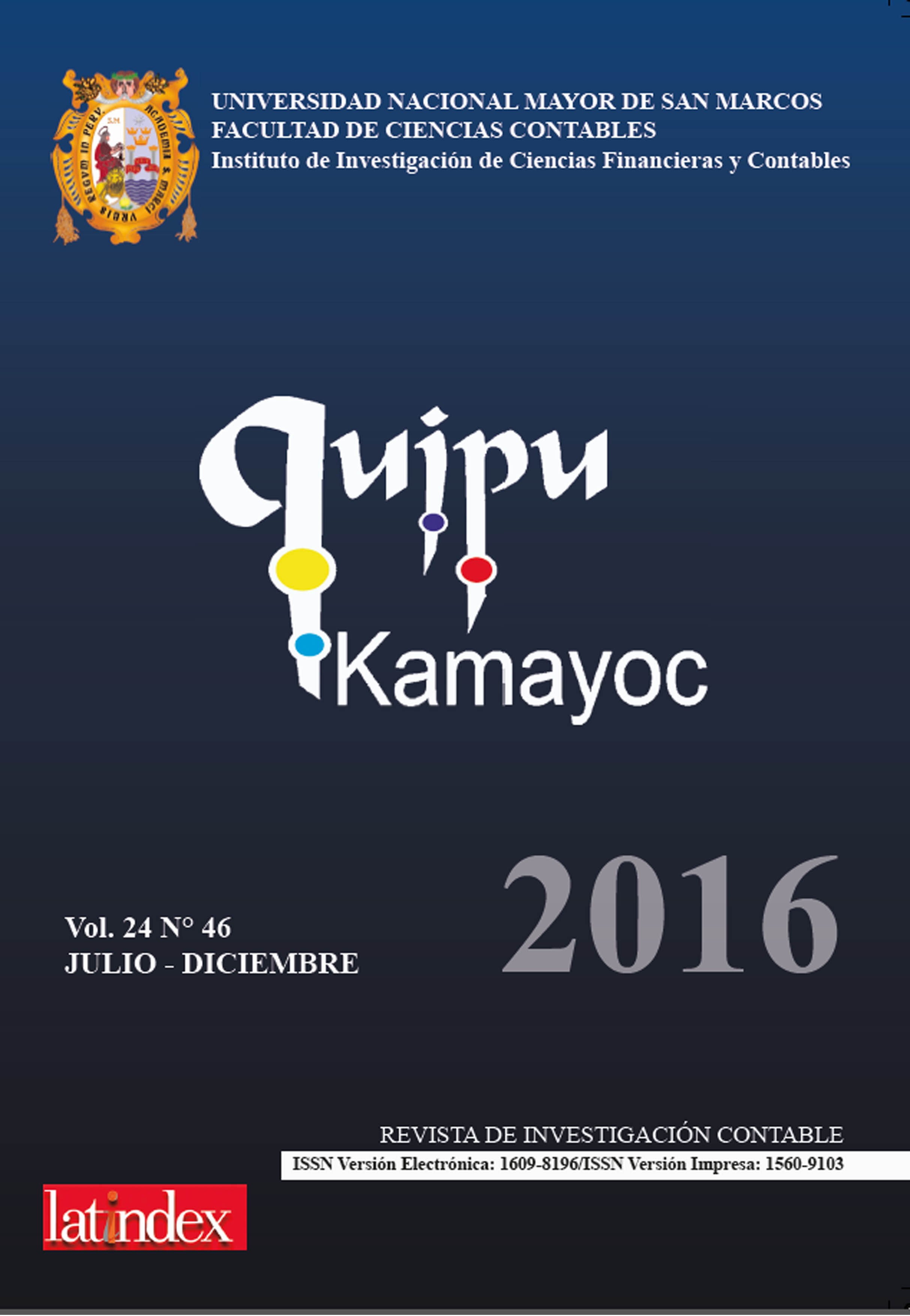MONETARY POLICY, INTEREST RATE AND DISCOUNT TO EVALUATE INVESTMENT PROJECTS
DOI:
https://doi.org/10.15381/quipu.v24i46.13256Keywords:
Investments, interest rate, discount rate, profitability, oligopolyAbstract
Private investments depend on a set of variables, including country risk and interest rate. The degree of sensitivity will also depend on how the financial market is organized, which in many cases, such as the Peruvian, has oligopolistic characteristics. In a way, this may generate a series of distortions in the degree of interest rates influence on productive investments.According to the theoretical conception, interest rate depends on the type of monetary policy implemented by the central banks, if it is expansive it must fall, achieving an opposite effect if the position is restrictive. The evidence indicates that the degree of correlation between the primary issue and the interest rate is weak and positive, so that the effects that the monetary authority can achieve is minimal with respect to investments. The opposite is true of the monetary rate that exerts a high influence on interest rates and, therefore, the discount rate used to evaluate investments.
Downloads
Downloads
Published
Issue
Section
License
Copyright (c) 2016 Nicko Alberto Gomero Gonzales, Víctor Ricardo Masuda Toyofuku

This work is licensed under a Creative Commons Attribution-NonCommercial-ShareAlike 4.0 International License.
AUTHORS RETAIN THEIR RIGHTS:
a. Authors retain their trade mark rights and patent, and also on any process or procedure described in the article.
b. Authors retain their right to share, copy, distribute, perform and publicly communicate their article (eg, to place their article in an institutional repository or publish it in a book), with an acknowledgment of its initial publication in Quipukamayoc .
c. Authors retain theirs right to make a subsequent publication of their work, to use the article or any part thereof (eg a compilation of his papers, lecture notes, thesis, or a book), always indicating the source of publication (the originator of the work, journal, volume, number and date).






